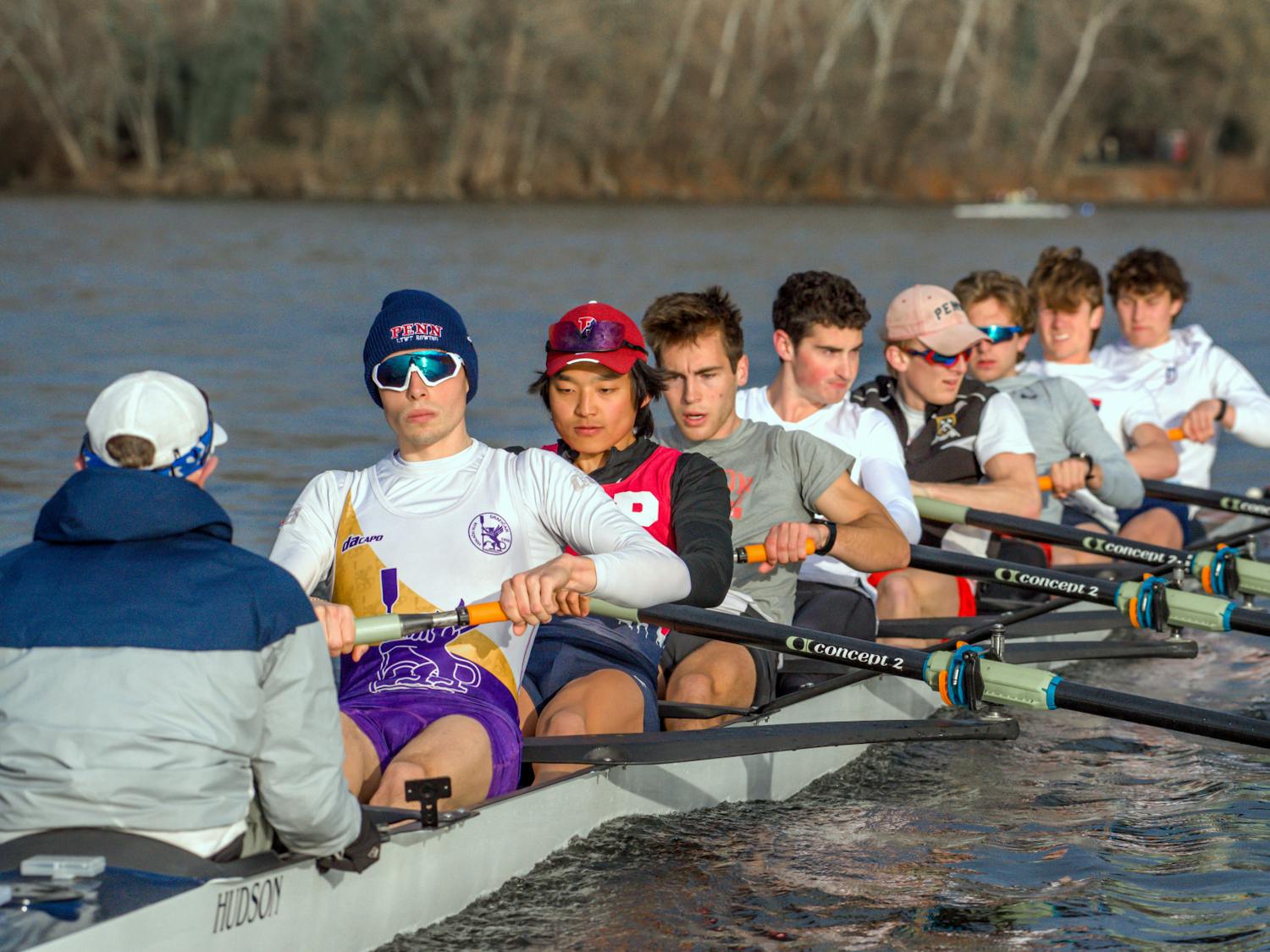With no coach, no uniforms and no varsity status, the men of the 1951 lightweight crew team overcame implausible odds to become one of the most successful crews in the history of Penn rowing.
On Saturday, members of that team will gather to commemorate the 60th anniversary of their unlikely journey from cast-offs to champions. The compelling story of how they got there began when the program was cut prior to the 1950 fall season.
Soon after, a few lightweight rowers approached the University about the possibility of running the team on their own.
“We asked them, ‘If we pay our own way and have our own coach, will you let us to continue to row?’” recalled Richard Kendall, a senior at the time who would end up rowing seven-seat in the Varsity Eight.
Since the lightweight equipment was of no use to the heavyweights, and it would cost nothing, the University granted permission. Essentially, they would operate as a club team.
After rowing un-coached throughout the fall season, the team persuaded graduate student Al Lawn, who stroked Penn’s heavyweight eight the year before, to take the helm in the spring.
In their first race, the eight placed second to Yale. After leading for much of the race, an error by the coxswain near the finish line allowed the Bulldogs to pull ahead in the end.
“Our coxswain mistook the finish line and had us stop about 20 strokes beforehand,” Bill Katterman, the boat’s three-seat, recollected.
The Red and Blue would not lose another race that season.
At the EARC Lightweight Championships in May, the Penn men revenged their loss and defeated Yale to capture the lightweight championship. The night before the race, however, the team was not even sure if it would be racing.
Practicing on the Charles River the afternoon before, its boat was nearly wrecked.
“We were fairly close to shore when a launch came by without any manners and swamped us,” Kendall remembers.
The rowers were forced to jump out of the boat to prevent it from sinking, and in the process, one man put his foot through the bottom of the thin shell.
In tears, the team carried the boat back to their boathouse believing their championship dreams were washed up — until “this wonderful guy who was the boatman at the MIT boathouse stayed up all night to fix it,” Katterman said.
After the EARC title, the team had hopes that its season was not yet over. According to Kendall, “At that time, it was the custom that the winner of the lightweight championship would compete in Henley,” which he called “the rowing equivalent of being in the Super Bowl.”
A wealthy alumnus named Crawford Madeira, who had stroked Penn’s Varsity Eight in 1916, organized the fundraising and the team was able to travel to England.
At Henley, the team was the only American crew competing. After winning four races in four days, they found themselves in the championship against a strong German crew.
Kendall fondly remembers that final race: “You probably have about 20,000 people lined along the narrow banks of the river, and they’re all yelling and screaming … It wasn’t that long after World War II, so the Brits were all cheering for us.”
In a close race, the Red and Blue won the first Thames Challenge Cup in Penn history. But their magical journey was not over yet. They headed next to Germany, where they would compete in the Hamburg International Regatta.
The first American crew to compete in Germany after the war, the team continued its streak, crossing the finish line first in both races it entered.
For the rowers, their experiences in England and Germany, only six years after the conclusion of the war, was unforgettable. The war left Germany “completely bombed” and, in England, led to the rationing of food and a huge increase in the value of the American dollar.
Today, the members of the 1951 team remain close. “We have gotten together every year since 1957,” Katterman said. “There was a time when we used to go out and row … we stopped that about 10 years ago.”
The influence of the 1951 lightweights is still felt today. Still commonly heard on the docks of the Penn boathouse: “Press on Regardless,” the 1951 motto.








